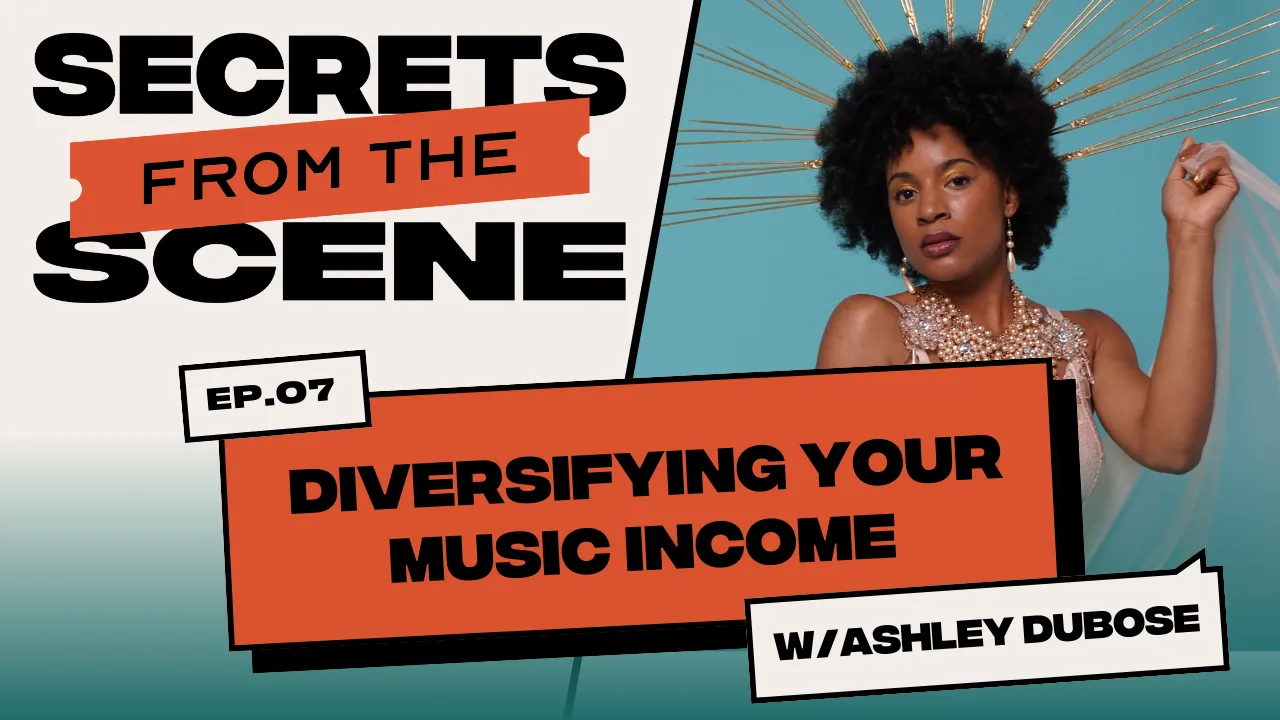Show Notes
Ashley DuBose discusses her multifaceted career, sharing experiences from her journey in the music industry, highlights from her performances on NBC's 'The Voice,' and insights from her work in a cover band. Ashley and I discuss the importance of diversifying your income, both in and out of the music industry. Ashley attributes much of her success to trying new things and saying yes when opportunities present themselves. Because of that, she has income not only from her solo career, but from a successful cover band, voice acting jobs, real estate, and more.
This episode demonstrates many of the different ways to diversify your income as a solo artist while highlighting Ashley’s personal journey in music. I think there are a lot of great insights to digest, I hope you enjoy!
watch now on YouTube:
Episode Links and Mentions
Connect with the Guest
Featured Song
Connect with Me
Give Feedback
📬 Send me a message: stephen@secretsfromthescene.com
💬 Suggest a guest or topic: podcast@secretsfromthescene.com
🎙️ Brought to you by:
--------------------------------
Thank You
This podcast is made possible by the hard work, expertise, and commitment of my team:
Max Greene and Joey Biehn. I'm forever grateful.
--------------------------------
Theme Music: "Thankful" Courtesy of LUEDVIG

